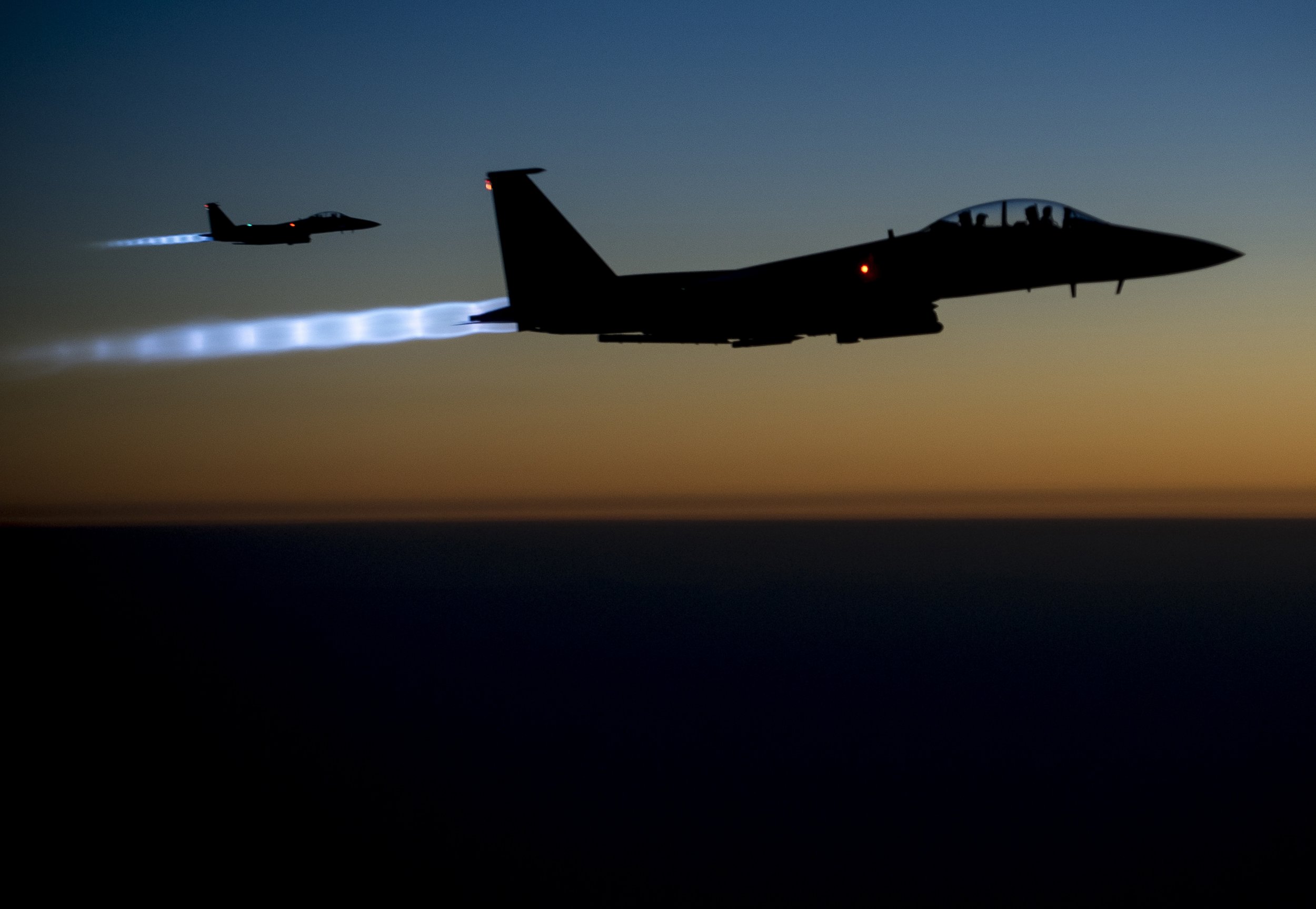
BAGHDAD (Reuters) - Coalition air forces pounded positions held by Islamic State in Ramadi on Thursday, Iraqi military statements said, in support of government troops seeking to retake the western Iraqi city and push on to drive the militants from key population centers.
Warplanes from the US-led coalition carried out 27 strikes against insurgent position in the last district they hold in the center of the Sunni Muslim city, which lies on the river Euphrates some 100 km (60 miles) west of Baghdad, according to a military statement on state TV. The long-awaited drive to dislodge the militants from Ramadi, the loss of which in May dealt a blow to government efforts to root out Islamic State, started early on Tuesday. Army commanders said on Wednesday the battle would take several days.If captured, Ramadi will be the second major city after Tikrit to be retaken from Islamic State in Iraq. Success would provide a major psychological boost to Iraqi security forces after the militant group seized a third of Iraq, a major OPEC oil producer and U.S ally, in a sweeping advance last year.
No ground advance was made on Thursday morning as the troops focused on clearing explosives, a local commander said, asking not be identified. The troops secured the vicinity of the district captured on Tuesday, Hay al-Dhubbat, TV said.
The control of major population centers in Iraq and Syria allows Islamic State to maintain a revenue base, controlling oil resources and large, fertile agricultural areas, and possibly plan attacks outside its core territory.
Col. Mohammed Ibrahim, a spokesman for the War Media Cell, said on Wednesday the distance to the Ramadi government complex, the target building in the city center, is 1,700 meters (just over one mile), and the presence of civilians is slowing progress.
SUNNI TRIBES
Progress has also been slow because the government wants to rely entirely on its own troops and not use Shi'ite militias in order to avoid rights abuses such as occurred after the recapture of Tikrit from the militants in April.
Local Sunni tribes have not been involved directly in the assault, but have been active in support activities across the province - a contrast to the U.S.-backed Tribal Awakening campaign 10 years ago when they united to drive al Qaeda elements from Anbar.
Joint operations command spokesman Yahia Rasool told Reuters on Wednesday the city would be handed over to Anbar police and local tribes after it was fully cleared and secured.
The ultimate aim for the government is to drive Islamic State from Mosul, Iraq's largest northern city, and Falluja, which lies between Ramadi and Baghdad, as well as large areas of Syria - the core of what it has declared to be a caliphate.
Uncommon Knowledge
Newsweek is committed to challenging conventional wisdom and finding connections in the search for common ground.
Newsweek is committed to challenging conventional wisdom and finding connections in the search for common ground.
About the writer
To read how Newsweek uses AI as a newsroom tool, Click here.








